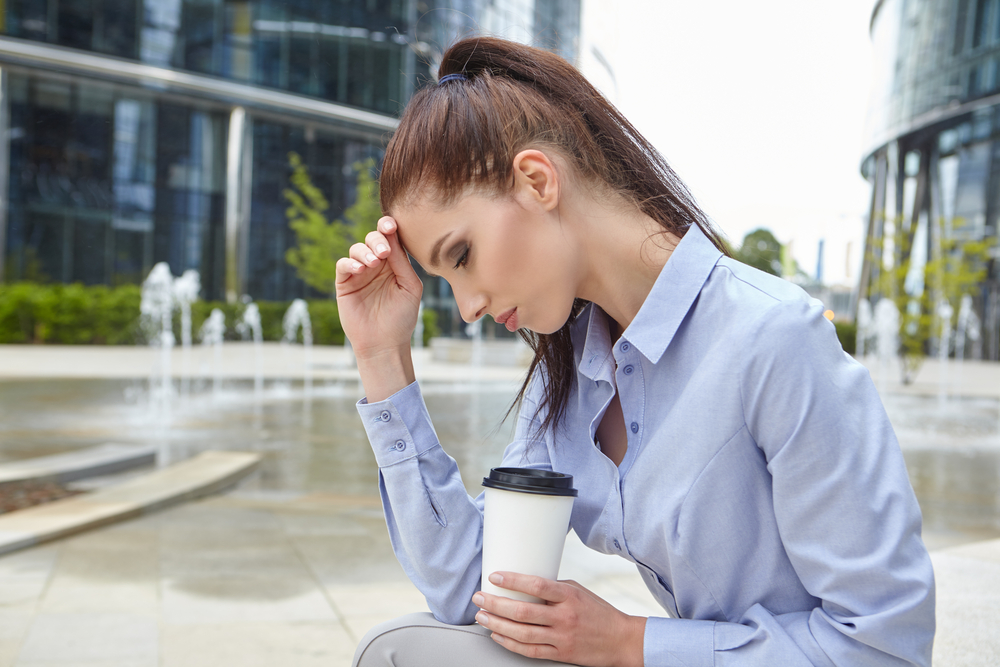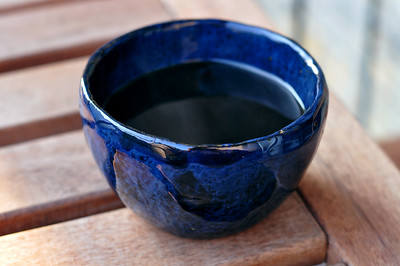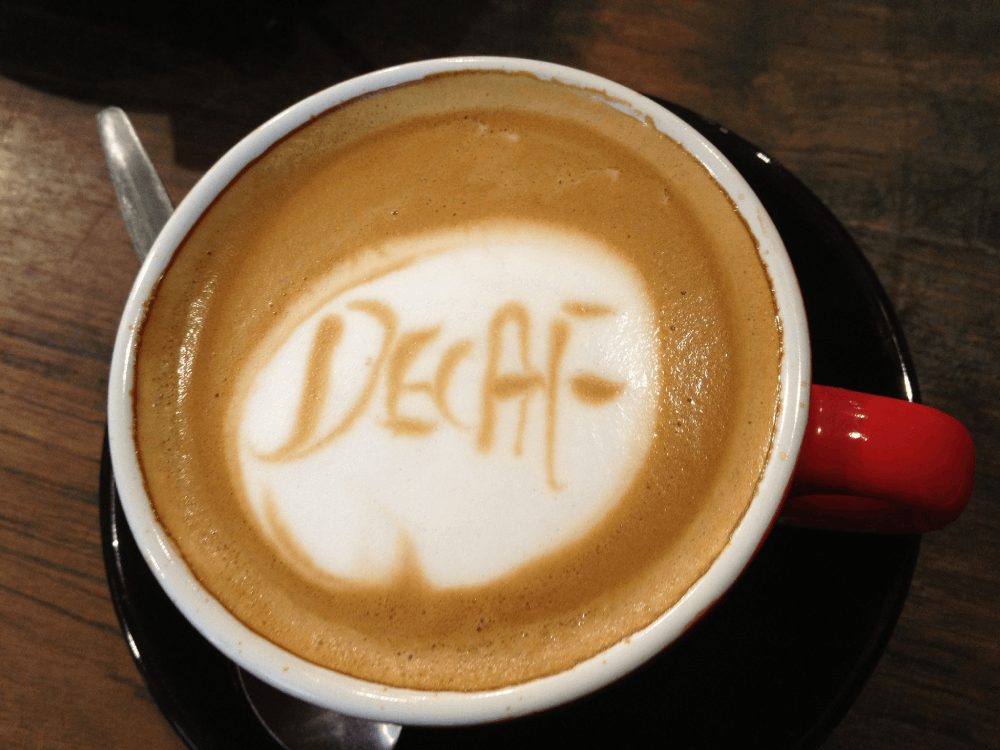Have you ever wondered how much caffeine is in decaf instant coffee? Whether you’re hoping to reduce your problems with insomnia or you’re trying to reduce your caffeine intake, knowing how much caffeine is in your daily beverages is crucial.
For the most part, many of us crave the coffee bean to help us gain mental alertness and additional energy. However, plenty of people like the taste of freshly brewed coffee and don’t want the caffeine content as an added extra.
Today, we’re going to be answering the question of how much caffeine is actually in a cup of instant decaf coffee and what kind of factors can influence whether you have more or less caffeine in your mug.
Is Instant Decaf Coffee Bad for You?
In a lot of ways, instant decaf coffee is very similar to regular instant coffee. The taste is essentially the same, and other factors like smell and appearance don’t suffer much from lack of access to caffeine.
However, there is a major difference between decaf and regular coffee: a lack of caffeine.

While instant decaf coffee does contain some caffeine, it’s a lot less than you’d usually get from a standard cup of coffee. So, is instant coffee better for your health than regular coffee?
The smaller dose of caffeine in your decaf coffee is a positive thing. Still, some people have questioned the safety of decaf coffee, as there may be small amounts of methylene chloride in the mixture – the solvents companies use during the decaffeination process.
While regular exposure to methylene chloride can be problematic, the FDA doesn’t consider the amount of this substance in decaf coffee to be particularly dangerous. The amount of methylene chloride in a cup of decaf coffee shouldn’t be large enough to cause any side effects, but your risk may increase if you drink a lot of decaf instant coffee.
Speak to a doctor if you notice symptoms like:
- Headaches
- Drowsiness
- Light-headedness
- Coughing or wheezing
- Irritability or mood swings
Can Instant Decaf Coffee Be Good For You?
Drinking decaf coffee could actually provide some significant health benefits in some cases. Because you’re not getting the high doses of multiple mg of caffeine in your daily drinks, you’re less likely to have problems with your sleep. When you can sleep properly, your body can fight disease and develop more effectively.
The coffee bean on its own also has a lot of benefits associated with it. Still, drinking too much regular coffee can be problematic, as the excess amount of caffeine may diminish the potential benefits. Coffee has been proven to help with everything from preventing type 2 diabetes to assisting with the prevention of Parkinson’s disease.
Some scientists believe coffee can also be excellent for preserving and supporting the liver, reducing the risk of liver cancer and various other conditions. The right amount of coffee intake also helps with managing heart health, but since a dose of caffeine per cup can increase blood pressure, it’s best to consume a cup of decaf if you want heart health.
Since decaf doesn’t have as much of an impact on your adrenaline levels, it can also be less likely to cause mood issues than a standard coffee or black tea. You may also find you have fewer health issues if you have a slight intolerance to caffeine.
How Much Caffeine Is in Your Decaf Coffee?
While it is possible to get complete caffeine-free beverages, most decaf coffee does have a small amount of caffeine in it. For people with caffeine sensitivity, this might mean you can’t have coffee at all – whether it’s decaffeinated or not.
To create decaffeinated coffee, every manufacturer, from Starbucks to your own supermarket brand, goes through a decaffeination process with the beans. The USDA regulations and guidelines for the US dictate a decaf cup of coffee should have most of the caffeine removed. The average cup of decaf shouldn’t have more than 0.10 per cent caffeine on a dry basis. In general, regulatory guidelines expect about 97% of the caffeine to be removed during the roasting process and decaffeination method.
The exact amount of caffeine in your cups of decaf coffee will depend on a number of factors. For instance, the type of beans used in regular caffeinated coffee will often contain more caffeine than the beans used in a caffeine-free or reduced caffeine beverage.
Decaf coffee beans are usually made either with water, organic solvents, or carbon dioxide, to help draw the caffeine out of the coffee beans. All methods involve steaming or soaking unroasted coffee beans until the pores of the beans are opened, minimizing caffeine. The most common methods for making decaffeinated coffee are:
• Carbon dioxide process: This is one of the more modern methods to ensure coffee has less caffeine. Carbon dioxide is typically found naturally within the coffee bean, so it’s a more natural way to reduce caffeine levels.
• Solvent-based processes: The most common way to get decaffeinated coffee or espresso is with solvents. The solvents used are usually a combination of methylene chloride and ethyl acetate, designed to create solvents that extract more caffeine from the bean.
• Swiss water process: This method is the most organic way to remove the caffeine coffee contains. Manufacturers start by choosing a coffee bean with naturally low levels of caffeine. Using osmosis, they then use water to create a 99.9% decaffeinated product.
The type of coffee you buy will usually impact the coffee flavour more than the decaffeination method. Most people find any form of decaf coffee is much milder than your standard espresso. When the coffee contains less caffeine, the flavour is usually more subtle.
Detecting the Average Caffeine Levels in Decaffeinated Coffee
As mentioned above, the amount of caffeine per cup of coffee in your drink will depend on a number of factors. Most types of decaf coffee will contain at least some caffeine, but some beans contain more caffeine than others.
The average cup of decaf coffee will usually contain up to 7 mg of caffeine, whereas each standard cup of brewed coffee you consume contains up to 140mg. While a decaffeinated beverage includes much less caffeine than the standard drink, it can still be problematic for anyone who needs to reduce their intake due to anxiety, kidney disease, or caffeine sensitivity.
It’s also worth noting that though the caffeine levels in a decaffeinated espresso or coffee are much lower if you have more than one beverage a day, the amount you drink can quickly add up. 5 to 10 cups of decaf could have a similar caffeine impact as a standard coffee.
Which Instant Decaf Coffee Has the Least Caffeine?
If you’re avoiding caffeine and cutting down on the amount of espresso you consume, you must know precisely how much caffeine per cup you’re drinking when you switch to decaf.
Most of the time, you’ll be able to find information on how much certain chemicals and caffeine are in your drink by looking at the ingredients label.

Getting the lowest possible caffeine content in your beverages will require some careful investigation. Remember, though the caffeine content is lower in decaffeinated coffee, it isn’t non-existent. Looking for a coffee made with the Swiss water process might be the best bet, as this kind of decaffeination process reduces caffeine content more than any other.
Aside from looking for lower caffeine content in your drinks, it’s also worth noting there can be mg of caffeine in various food and other products you consume. For instance, check the caffeine content in your chocolate the next time you indulge in a bar. Chocolate can frequently have extra caffeine in it, which might be why you get a buzz after eating a full bar.
It’s also important to think about the caffeine in the tea and other beverages you drink. Many energy drinks and certain kinds of tea can contain more caffeine than you’d expect.
How to Reduce Your Caffeine Intake
We hope this article has been helpful in understanding how much caffeine is in decaf instant coffee. Remember, if you want to reduce your caffeine consumption, research is key. Speak to the people at your local coffee shop about the best way to get minimal caffeine in your drinks if you’re not sure which options to go for. Most baristas will have more information to share with you about which coffee beans have the least caffeine or which are best if you’re looking for a low caffeine experience.
Don’t forget to look at the ingredients of the various products you eat throughout the day, from energy drinks to protein bars, as you might be surprised about the amount of caffeine you can find in your kitchen cupboards.
You may even decide to switch to green teas and other drinks to get a boost of energy each morning if decaf coffee doesn’t give you the experience you need. Experimenting with different ways to start your morning can be an excellent way to improve your routine.

